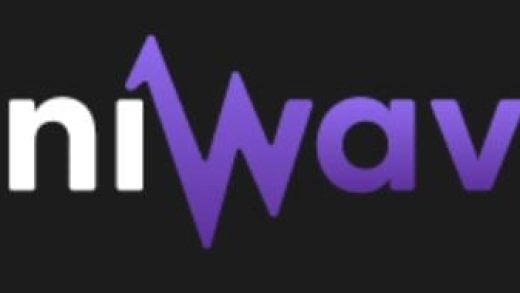Airport runways are built to international standards, but civil engineers and architects must consider wind, terrain and a host of other factors before sketching out blueprints.
Startup runways are similar: Healthcare and fintech face different headwinds, which means companies in these sectors manage their cash differently.
According to Healy Jones, who oversees financial analysis and planning for Kruze Consulting, average startup runway length was 23.4 months in January 2023, up from 19.6 months in 2019.
Full TechCrunch+ articles are only available to members.
Use discount code TCPLUSROUNDUP to save 20% off a one- or two-year subscription.
“However, the average can hide some important nuances,” he notes.
In a report that crunched spending, revenue and runway data from more than 700 startups in health tech, fintech, e-commerce and SaaS between 2021 and 2022, he found that early-stage companies are slashing spending on everything from office rent to hiring.
Thanks for reading TC+ this week!
Walter Thompson
Editorial Manager, TechCrunch+
@yourprotagonist
Apple’s AR headset is a game-changer for startups
Image Credits: Apple
Creating demand for a new product is hard. Unless you’re Apple.
There is a built-in customer base for every SKU on Cupertino’s virtual shelves, and the upcoming Apple Vision Pro is no different, despite its initial $3,500 price tag, writes Haje Jan Kamps.
“Still, the preposterously over-engineered headset is a vital flag in the ground for startups,” he writes.
Spatial computing may not have a broad user base today, but “with a few notable exceptions, the company has a formidable track record of willing entire ecosystems into existence.”
You need to add some friction to your growth funnel

Image Credits: Misha Kaminsky (opens in a new window) / Getty Images
An onboarding flow that’s entirely smooth is a great way to lose potential customers, according to growth marketing expert Jonathan Martinez.
“One of the biggest misconceptions when it comes to user experience is that we must eliminate as many questions and barriers as possible to be the gold standard,” he writes in TC+.
In this week’s column, he explored three different types of friction and explains how to run lifetime value (LTV) experiments that drive conversions.
Five fundamentals for creating an effective OKR process

Image Credits: Caspar Benson (opens in a new window) / Getty Images
Now that easy money is off the menu, startup teams must demonstrate that they’re capable of setting (and reaching!) strategic goals.
Inexperienced founders often chase vanity metrics like social media followers or total user count that validate short-term efforts.
Successful companies, on the other hand, use objectives and key results (OKRs) to align their day-to-day efforts with long-term goals.
Whether you already have an OKR process in place or are setting one up, this comprehensive guide by Julia Daniel and Karl Alomar at early-stage VC firm M13 covers the essentials:
- The OKR framework.
- Setting annual objectives.
- Creating an annualized roadmap.
- Quarterly planning.
- How to establish a rinse-and-repeat cadence.
How to approach the discovery process as an early-stage startup (and beyond)

Image Credits: A. Martin UW Photography (opens in a new window) / Getty Images
There are many ways to approach customer discovery, but two methods dominate:
- Sales and product teams gather data, ask questions and run experiments.
- People substitute their own judgment for user input and hope for the best.
Chasing the wrong audience wastes time and money, which is why Yousuf Khan, partner at Ridge Ventures, wrote a TC+ post with tactics for identifying qualified customers.
“Whether you’re pursuing customer number five, 50 or 500, the process of determining if there’s a fit remains largely the same.”
Get the TechCrunch+ Roundup newsletter in your inbox

To receive the TechCrunch+ Roundup as an email each Tuesday and Friday, scroll down to find the “sign up for newsletters” section on this page, select “TechCrunch+ Roundup,” enter your email and click “subscribe.”
Click here to subscribe
European startups on track to raise $51B this year, down 39% from 2022

Image Credits: Nigel Sussman (opens in a new window)
Unless the overall environment changes, a new report from European VC firm Atomico forecasts that startup funding in the region “will be 52% lower than in 2021,” writes Anna Heim.
“The adjusted market reality is here to stay,” Atomico predicted, including more down rounds and layoffs.
“2021 was a clear outlier, with investment volumes and valuations now returning to long-term averages,” according to Atomico partner Tom Wehmeier.
“That’s no bad thing, but it won’t be an easy time for everyone.”
Ask Sophie: Why is there no movement in the June Visa Bulletin for India EB-3?

Image Credits: Bryce Durbin/TechCrunch
Dear Sophie,
Why is there no movement in the June 2023 Visa Bulletin for India EB-3?
Can’t the Department of State/USCIS track the interfiled applications between EB-2 and EB-3 and move the dates accordingly?
— Curious in Chennai
What are Series A VCs looking for? Many seed investors aren’t so sure anymore

Image Credits: Getty Images
Rebecca Szkutak interviewed three seed-stage investors to learn more about what it takes to close a Series A in June 2023:
- Loren Straub, general partner, Bowery Capital
- Eric Bahn, co-founder and general partner, Hustle Fund
- Yoni Rechtman, venture principal, Slow Ventures
Now that ARR isn’t the north star metric it once was, their answers varied. “The goal posts seem to be moving a lot,” said Bahn.
“It really sucks for a lot of people,” said Rechtman. “I really feel for people who I think have been sold a false bill of goods.”
TechCrunch+ roundup: OKR basics, betting on Apple Vision Pro, why smooth onboarding is bad by Walter Thompson originally published on TechCrunch
Source : TechCrunch+ roundup: OKR basics, betting on Apple Vision Pro, why smooth onboarding is bad









